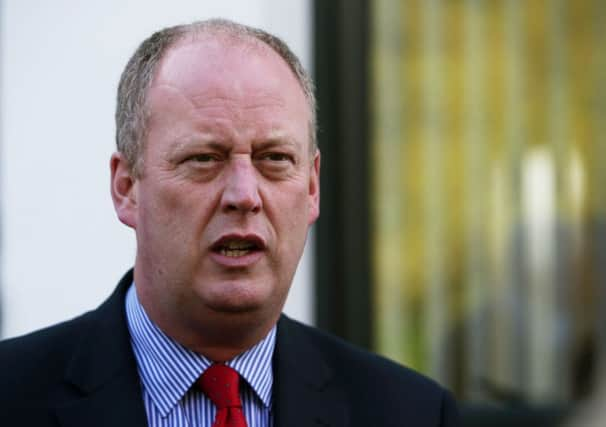PSNI Chief Constable writes to every home in Mid Ulster


to every home in Mid Ulster to explain what the forthcoming changes to policing will
mean for the public.
The letters are being delivered across the District to coincide with the April 1 deadline
Advertisement
Hide AdAdvertisement
Hide Adwhich marks the beginning of a transformation process within the police service to align its
Districts with the 11 new Local Councils as part of the Review of Public Administration (RPA).
They will be accompanied by a Newsletter tailored specifically with information for Mid Ulster and will introduce the new local District Commander, Supt. Mike Baird and his team of senior officers who will be working tirelessly within the area to keep people safe.
It will also provide details on the changes taking place within frontline policing over the next six
Advertisement
Hide AdAdvertisement
Hide Admonths aimed at being more responsive to the needs of local communities.
The local Newsletter also highlights some of the key work the Police Service of Northern
Ireland is involved in, alongside partners, to make communities safer and more confident
places to live and work in.
Chief Constable George Hamilton explained: “Policing in Northern Ireland is undergoing major change, providing us with exciting new opportunities to deliver a policing service with local communities. Our new structure is about providing more time for our officers to engage and investigate.
Advertisement
Hide AdAdvertisement
Hide Ad“My job, as Chief Constable, is to manage this change process and keep the focus on protecting people, preventing crime and detecting criminals. We must adapt to new pressures and challenges whilst keeping communities at the heart of everything we do.
Policing is changing but our policing purpose remains the same - keeping people safe is what PSNI do. Policing with the Community is how we deliver the service.
“It is vitally important the public are kept updated and informed of new developments within policing. Previous research has indicated that local people prefer to receive information directly through their letterbox so we have listened and are using the Newsletters as one of a number of ways to inform them of what these changes will look like.”
While a number of structural and operational changes will happen on April 1st, it will take up to six months to have the new frontline policing model in place.
Advertisement
Hide AdAdvertisement
Hide AdChief Constable Hamilton added: “The 11 new Districts will be leaner and more streamlined and will focus firmly on local priorities. They will be supported by central teams of officers and staff, who will ensure we have the necessary resources in the right place at the right time to quickly deal with issues in local communities.
“Due to the impact on our budget, we are becoming a smaller organisation, which means we have to look at how we prioritise our reducing resources. However, I want to reassure the public that we will continue to work tirelessly to keep people safe.”
Superintendent Baird, the Mid Ulster District commander, said: “We have a large population centre in Mid Ulster and busy outlying towns, as well as a rural hinterland with a number of smaller communities. We are looking forward to retaining and strengthening the links we have with people, organisations and groups in the area. Our focus will remain on keeping communities safe, preventing crime and detecting criminals through Policing with the Community.
“My senior team has officers with long service and extensive experience in the area, and while they will have specific functional roles to play within policing locally, I am also keen we do not lose the direct community relationships that have been established and have worked so well under the ‘old’ system.”